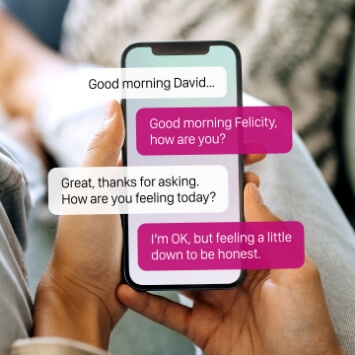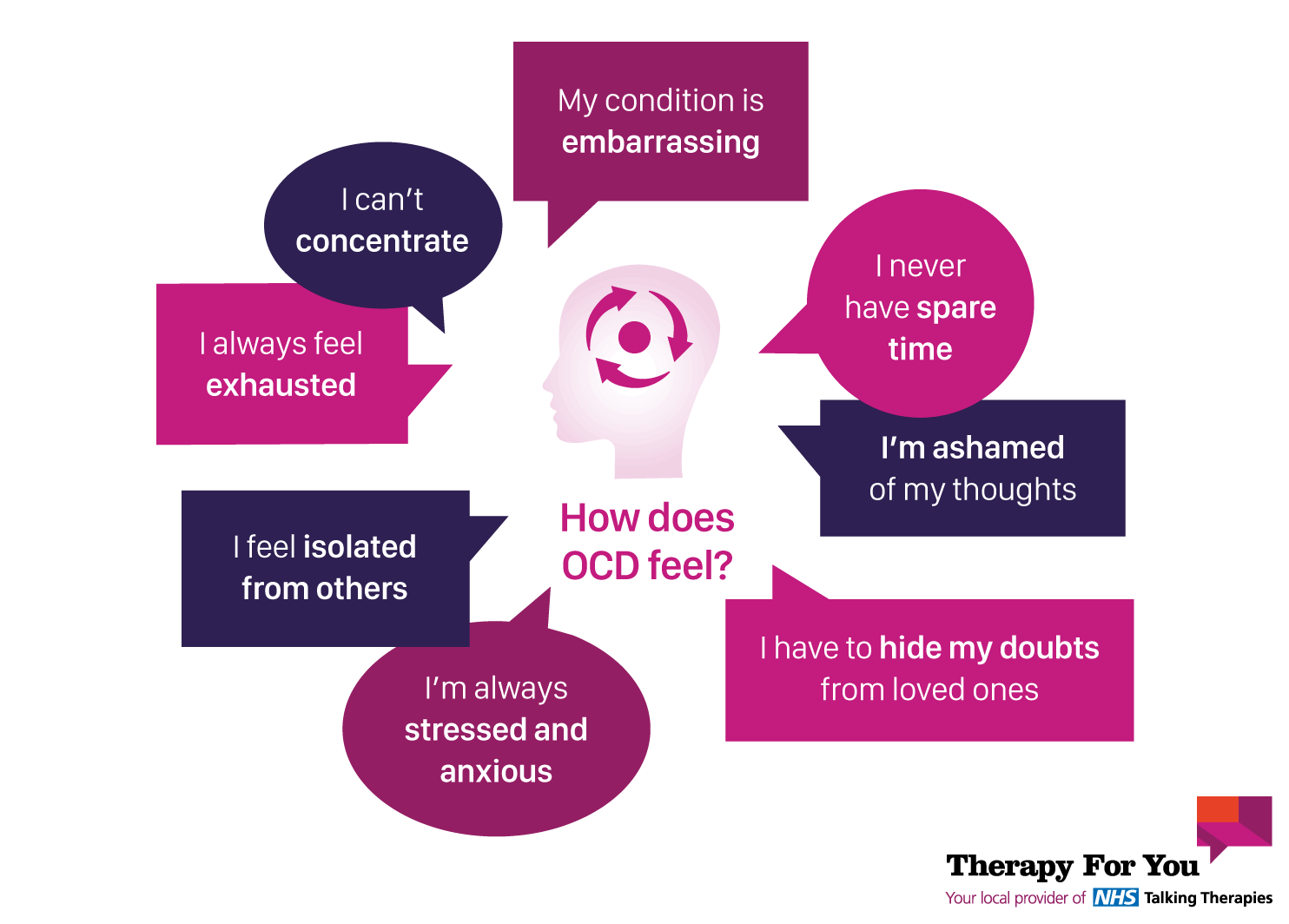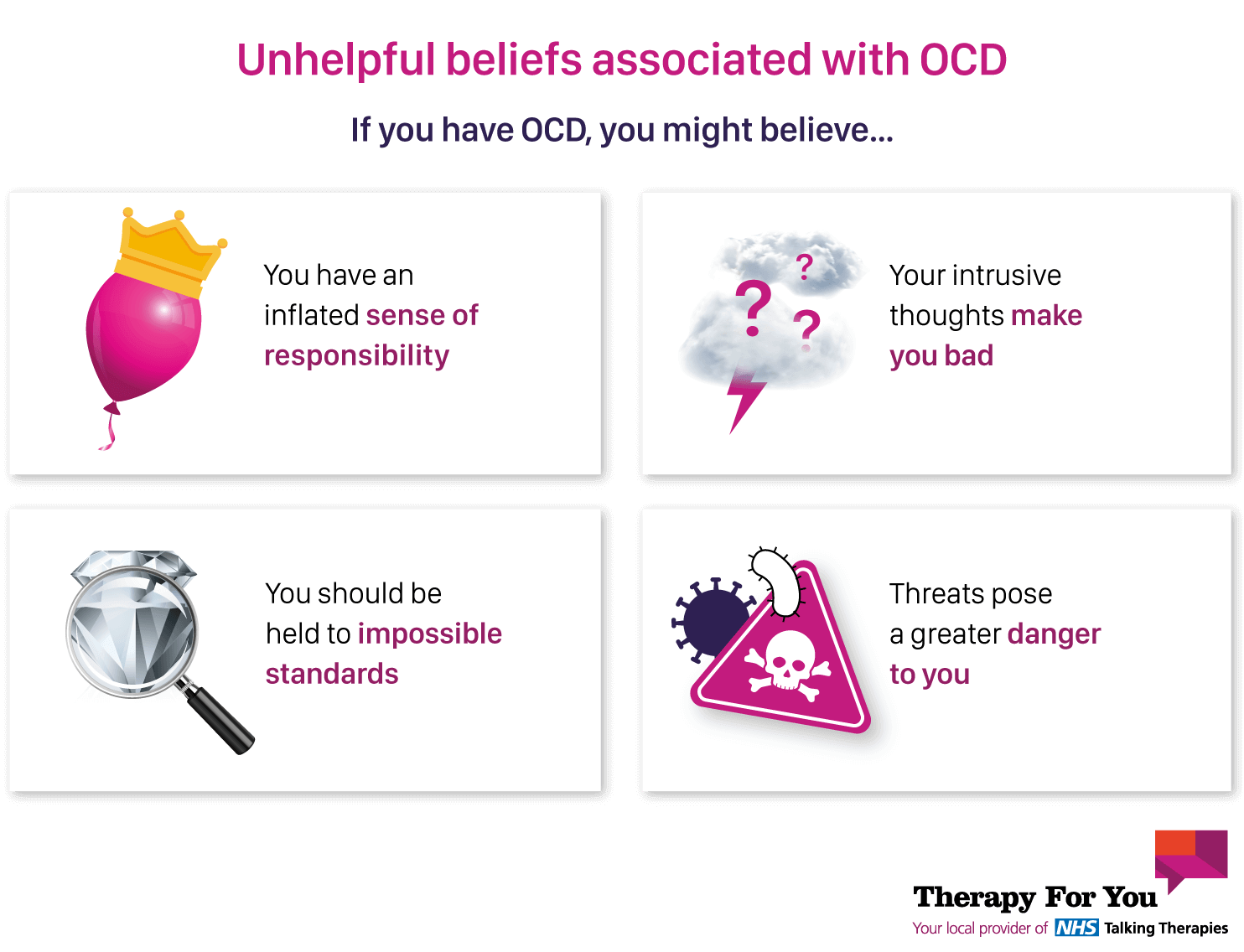OCD Courses & OCD Therapy Essex
Most people have some type of harmless obsession or compulsion – like worrying if the door is locked or avoiding cracks in the pavement. But when these types of anxieties or patterns take control of your day and cause you severe distress, that’s when we’re here to help.
Therapy For You can offer you a range of mental health courses in Essex to better manage this type of problem, beginning with our OCD therapy. Here, we help you understand more about your condition, identify intrusive thoughts and actions that have become part of your life, and develop ways to overcome these unwanted patterns of behaviour.
Speak about what’s troubling you face-to-face with a qualified, supportive therapist – in the comfort and security of a private, confidential setting. Here you can openly discuss your feelings, experiences and symptoms, working one-on-one with your therapist to identify beneficial techniques and skills tailored to your specific circumstances.

Explore your emotions and develop lifelong techniques, surrounded by people who share the same challenges as you. Our safe, confidential group therapy sessions are led by qualified mental health professionals that get you talking about your thoughts and feelings with peers who understand your situation. Together, take significant steps to feeling better.

If you cannot attend regular therapy in person, we can bring a qualified therapist to you through our dedicated video calls. Speaking with your therapist on camera at a time and place that suits you, you can openly discuss any issues that are causing you distress or making you feel uncomfortable. You’ll learn new techniques to help you overcome your problems and start you on your path to feeling better.

If you have a busy family life, mobility issues or other barriers to getting out and about, we can make sure you still have access to the support you need through phone therapy. We arrange calls between you and a qualified therapist throughout the day, meaning you can always access mental health guidance and support at a time and place that’s convenient for you.

Mental health support that’s there when you need it. When you can’t find a voice to express how you feel, typed therapy by ieso enables you to text your fully qualified therapist at any place and time. Based on proven CBT techniques, you can discuss your concerns in a safe, private and relaxed way, maintaining a record of conversations you can always revisit to support your recovery.

Who can access OCD support in Essex?
Therapy For You’s free mental health services are accessible in our North East and South East Essex catchment areas. If you are registered with a GP in the Colchester, Tendring, Southend, Castle Point and Rochford regions, we are ready to help you.

Mental health services in North East Essex
Here are the areas and postcodes covered by our mental health services, available for anyone aged 16 or over.
- Clacton-on-Sea
- Colchester
- Frinton-on-Sea
- Harwich
- Manningtree
- Tendring
- Walton-on-the-Naze
- West Mersea

Mental health services in South East Essex
Here are the areas and postcodes covered by our mental health services, available for anyone aged 18 or over.
- Canvey Island
- Castle Point
- Hadleigh
- Leigh-on-Sea
- Rochford
- Shoeburyness
- Southend-on-Sea
- Westcliff-on-Sea
Ready to start your journey to feeling better with Therapy For You?
Discover our treatment pathways, gain lifelong techniques to improve your wellbeing and embrace a happier, healthier future.
Omni Online CBT
Instantly begin an online video course delivered by trained NHS clinicians.
Talking Therapies
Make a self-referral for our 1-1, group, phone or video therapy sessions.
ieso Typed Therapy
Check your eligibility for ieso and text a qualified therapist around your schedule.
link

